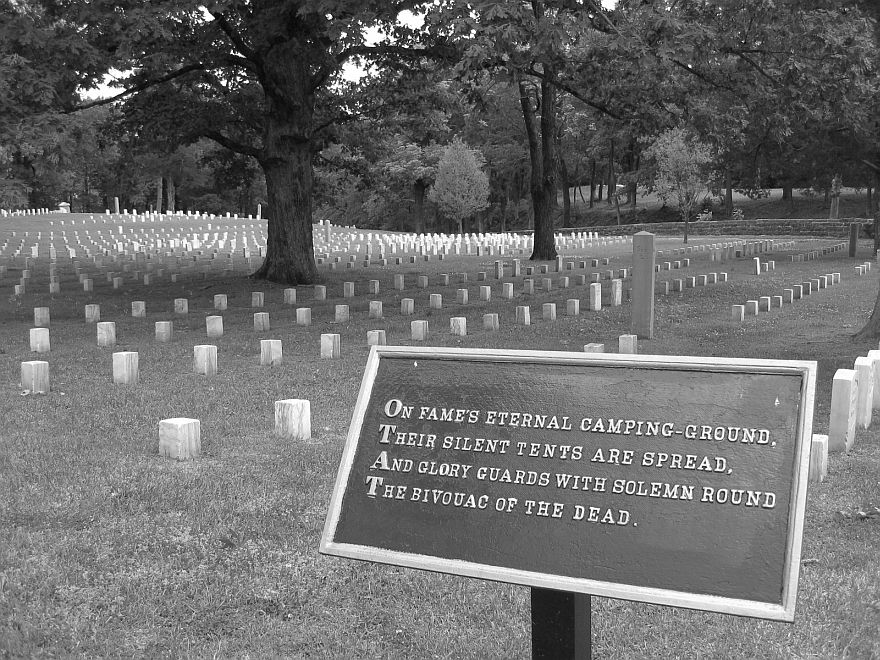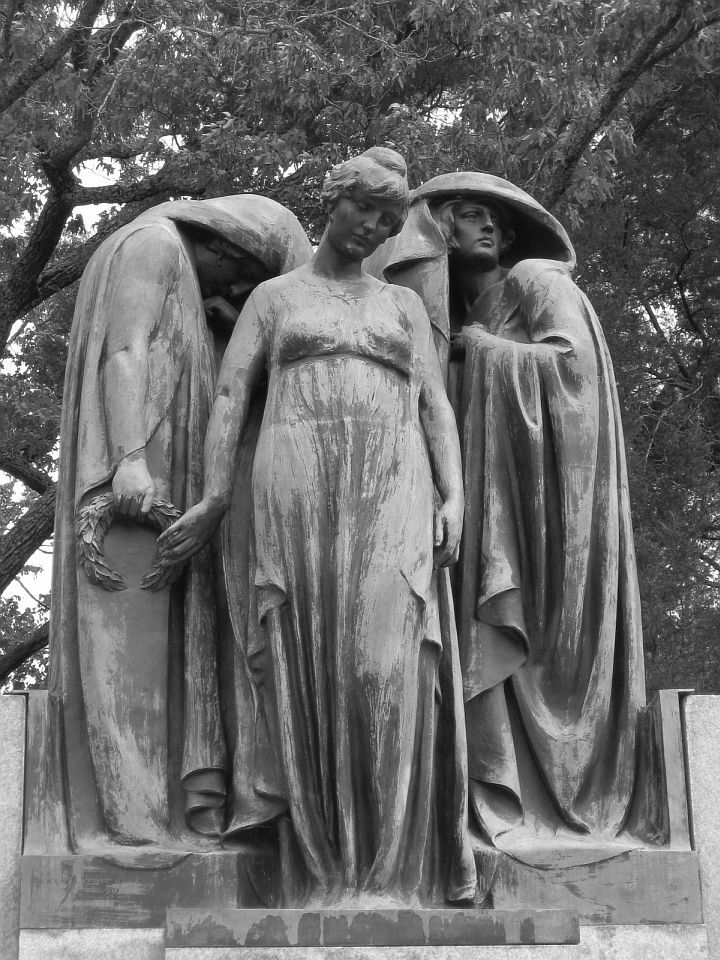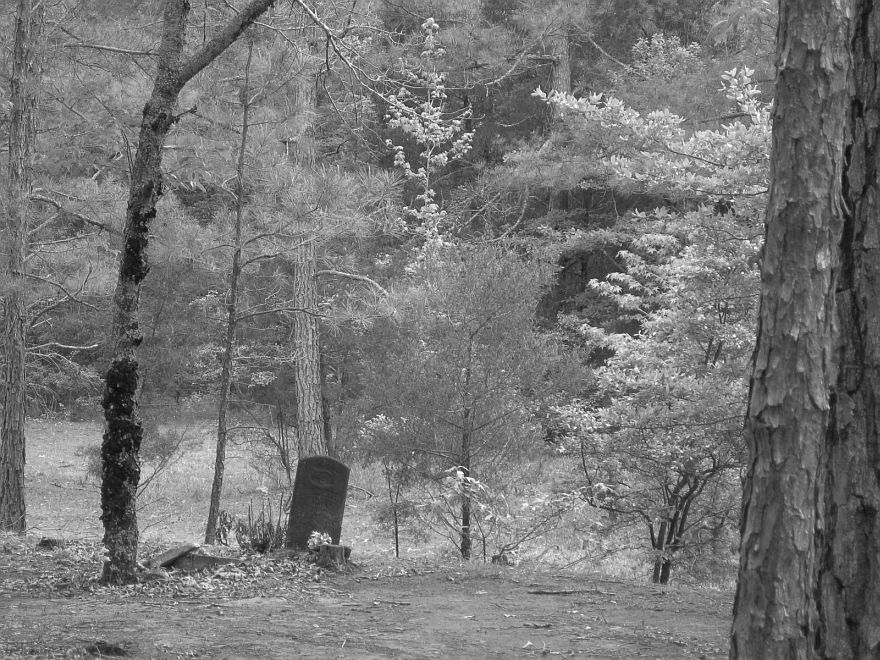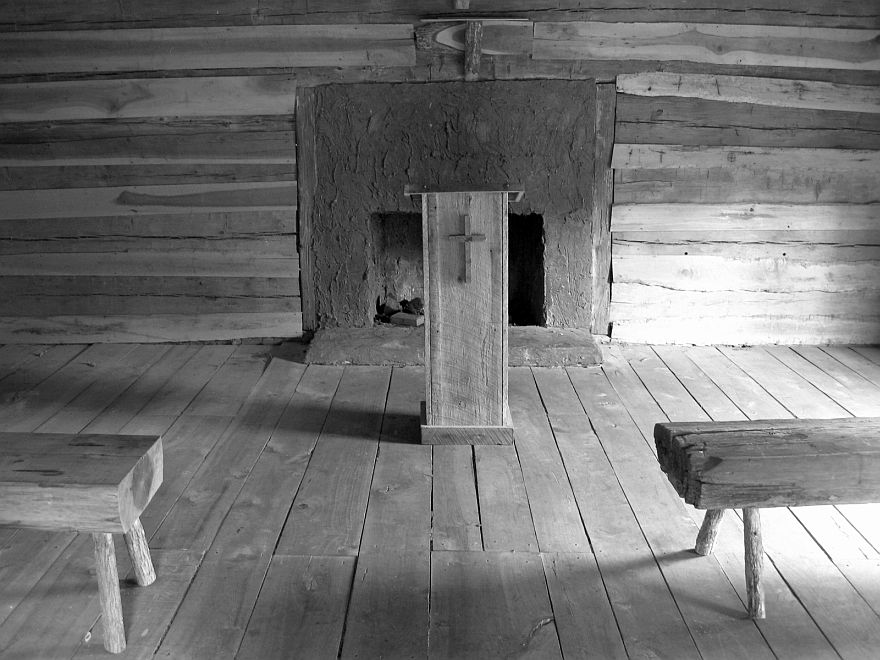As is so often the case, my cyclothymic nature is in sync with the weather. After some heavy rain throughout the night, the sun is breaking through the clouds this morning just like the opening credits of The Simpsons and today feels so much better than yesterday.
I ended up yesterday heading south as far as Chattanooga. A look at the map showed that it would still be easy to dog-leg west if Birmingham didn't work out, so I figured what the hell. Maybe I'd get lucky. One last e-mail before bedtime about one last craiglist listing turned up as a dead-end, though, so this morning I turned my back on B'ham and re-set my sights on the original rendezvous in Memphis.
As Route 24 outside of Chattanooga followed the curves of the Tennessee River before heading up and over the last of the Appalachians, I popped The Raconteurs into the cd player. Jack White has mentioned that one of the main things he's gotten out of the Racs is the opportunity to work on his song-writing with a craftsman like Brendan Benson. Personally, I think he's selling himself short, as is the rest of the world. I don't play any instruments so I can't speak to the music, but words are my thing and I will say that Jack's incredibly overlooked as a lyricist. In It Might Get Loud, he talks about wondering whether he could become a member of the story-telling family of the great bluesmen. If he hasn't proved to himself by now that he's done so, then I'd love to be the one to assure him he has.
Story-telling is the raison d'etre of The Raconteurs. If you've never looked up the meaning of the word raconteur, it's defined as "a person skilled in telling anecdotes". The first album, Broken Boy Soldiers, seems like a warm-up for the band in this respect, as it's not until Consolers of the Lonely that both Brendan and Jack break out some serious tales-- Brendan's "The Switch and the Spur" and Jack's "Carolina Drama". Of the two tunes, "Carolina..." is by far the standout, full of dramatic intensity and a cleverness that's typical of Jack. Between the fantastic imagery and the question of what the hell the milkman has to do with it all, it's an engrossing song.
I'm not sure if there's a point to this story
But I'm going to tell it again
And like just about every other tale
Someone's gonna die in the end
It was a junk-house in South Carolina
Held a boy the age of ten
Along with his older brother Billy
And their mother and her boyfriend
Who was a triple loser with some blue tattoos
That were given to him when he was young
And a drunk temper that was easy to lose
But thank god he didn't own a gun
Well, Billy woke up in the back of his truck
Took a minute to open his eyes
He took a peek into the back of the house
And found himself a big surprise
He didn't see his brother but there was his mother
With her red-headed head in her hands
While the boyfriend had his gloves wrapped around an old priest
Trying to choke the man
Billy looked up from the window to the truck
Threw up, and had to struggle to stand
He saw that red-necked bastard with a hammer
Turn the priest into a shell of a man
The priest was putting up the fight of his life
But he was old and he was bound to lose
The boyfriend hit as hard as he could
And knocked the priest right down to his shoes
Now Billy knew but never actually met
The preacher lying there in the room
He heard himself say, "That must be my daddy"
Then he knew what he was gonna do
Billy got up enough courage to get up
And grab the first blunt thing he could find
It was a cold glass bottle of milk
That got delivered every morning at nine
Billy broke in and saw the blood on the floor, and
He turned around and put the lock on the door
He looked dead into the boyfriend's eye
His mother was a ghost, too upset to cry, then
He took a step toward the man on the ground
From his mouth trickled out a little audible sound
He heard the boyfriend shout, "Get out!"
But Billy said, "Not till I know what this is all about"
"This preacher here was attacking your mama"
But Billy knew that she was caught in the drama
So Billy took dead aim at his face
And smashed the bottle on the man who left his dad in disgrace
The white milk dripped down with the blood
And the boyfriend fell down dead for good
Right next to the preacher who was gasping for air
And Billy shouted, "Daddy, why'd you have to come back here?"
His mama reached behind the sugar and honey, and
Pulled out an envelope filled with money
"Your daddy gave us this," she collapsed in tears
"He's been paying all the bills for years"
"Mama, let's put this body underneath the trees
and put Daddy in the truck and head to Tennessee"
Just then, his little brother came in
Holding the milkman's hat and a bottle of gin singing,
La la la la, la la la la, yeah
Well now you heard another side to the story
But you wanna know how it ends...
If you must know the truth about the tale
Go and ask the milkman
Back to the road... I-64 runs east-west through southern Tennessee and is apparently in the process of being converted from a two-lane blue highway into a four-lane thru-way. I'm glad I had the chance to drive it before the work was completed-- While the newer sections were wide and smooth and perfect for picking up some speed while still retaining a rural feel, they definitely didn't have the same intimacy of the narrower, older portions. The road squeezes down into 2-lanes as it rolls through each small town it hits. Two common elements I've noticed throughout these towns are giant crosses on the water towers and gun permit classes at the local civic centers. One of the largest is Lawrenceburg, home to both Davy Crockett and actor/senator (same thing, really) Fred Thompson, where I stopped for a quick lunch and realized that I'd crossed into the next time zone.
But even that extra hour didn't leave enough time for a thorough tour of Shiloh battlefield. I've mentioned before that I'm a U.S. Civil War buff, and Shiloh was my goal for today before the Birmingham idea got stuck in my head. As much as anything else, these preserved battlefields appeal to me for their beautiful landscapes and the monuments erected to honor the men who fought and died on the land.
As I walked through the national military cemetery and the older graveyard at Shiloh church, another Jack White connection came to mind. Back in 2003, Jack had a tiny bit part in the film Cold Mountain (good flick, but be sure to read the novel). He was also tapped for the soundtrack, for which he performed four traditional songs and wrote one original. The tune he wrote, "Never Far Away", is another example of his lyrical abilities, as it's a synopsis of the movie in a handful of beautiful verses. It's not used in the film and apparently barely made it onto the soundtrack album (according to Jack, it was added as "favor" to him), which is a shame. Thinking about the people who lived and died around the time of the battle of Shiloh, both this song and the old folk tune "Great High Mountain" played through my head, fitting accompaniments to the scene.
Arrived in Memphis early in the evening and achieved four objectives in short order: Locate my hotel, scope out Minglewood Hall (venue for tomorrow night's show), find the old cemetery behind the Piggly-Wiggly up the street from Minglewood, then eat some amazing bbq ribs at Cozy Corner. I don't know if it was the spicy sauce on the ribs or just mounting excitement at what's ahead tomorrow, but it was well after 1:00am when I finally turned out the lights and tried to calm down to sleep.
The full collection of photos for this trip is here.










Surely the milkman is the little boy’s daddy? The milk is delivered every day at nine and the boy is ten. But the bigger Milkman is of course Jack Milky White, who is telling the story, or rather the ‘other side’, the ‘truth about the tale’.
ReplyDeleteI love this song with its clever internal rhymes – it sounds as though Jack has been listening to rap music and has picked up a little bit of Eminem’s verbal dexterity. He paints himself into a corner once and has to say ‘red-headed head in her hands’ to get the internal rhyme, alliteration and rhythm, which looks clumsy on paper. On the other hand, so to speak, he avoids doubling the word ‘hands’ by using ‘gloves’ in the next line. A guitar-player using metonymy! Or is it synecdoche, I forget. He breaks his strict color code in order to have the lovely who was a triple loser with some blue tattoos and a temper that was easy to lose; shame about the color but a great line. And of course he manages to get in the image of red hair in white hands (I assume they’re white – she’s a red-head, the kid’s called Billy and the brother is hungover in a truck, so they sound pretty white to me) and the red blood running into the white milk.
Framing the story top and bottom by letting you know it’s the second time you’ve heard it is clever, too. Especially as you know you haven’t heard it before!
Sorry you missed B'ham. :(
Yeah, my assumption is also that the milkman is the younger brother's dad and that the bottle of gin is what that father provides instead of money to pay bills. Is Jacky, our narrator, perhaps the younger boy telling the story years later? Or is he just throwing out a red (Hah!) herring?
ReplyDeleteI've never listened to Eminem, so I can't comment on that comparison. And I've always been more of a stream-of-consciousness type than a rhythmist, myself. But, yes, I'll agree that there are a couple of clumsy rhymes, but he carries them off well and then turns around and throws in some zingers to counteract them. The blue tattoos reference was necessary to establish character, but don't forget that he stepped outside of the red/white/black box with the Racs, so you've got to allow it.
The vividness of the imagery and the way he builds tension, though, are enough for me to overlook any minor flaws in the construction.